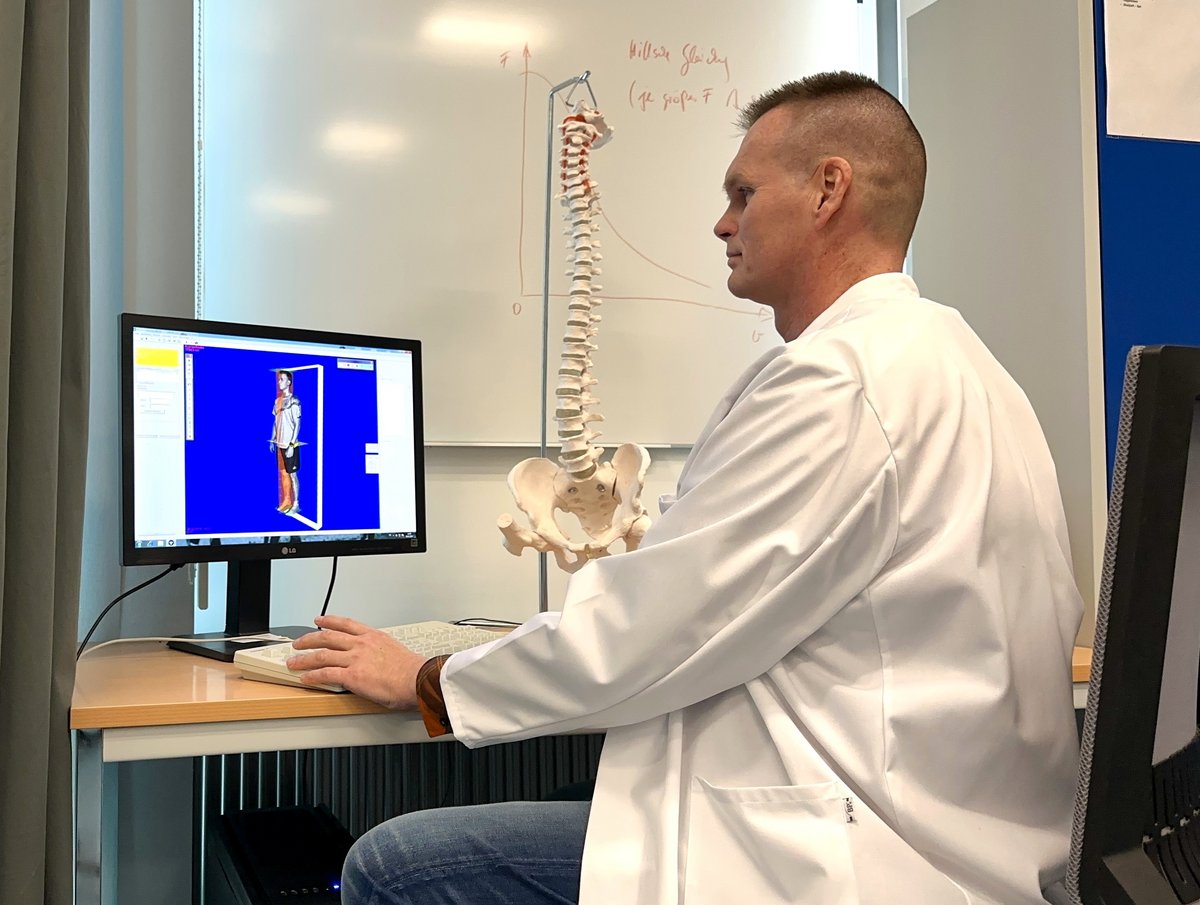Textile innovations for outpatient healthcare
Sensor-based protection and monitoring systems for vitality and mobility in old age (SeSMoVit-A) is the title of the important project for the Senftenberg Health Campus, for which Prof. Dr. habil. Sven Michel, Head of the Chair of Therapy Sciences II at BTU, is in charge of. Following a two-stage selection process, the BMBF is providing 2.5 million euros over the next three years via the WIR! - Change through Innovation in the Region program line, as well as the prospect of follow-up funding. Around 600,000 euros of this is available for research at BTU.
In order to be able to monitor and protect patients at home or in care facilities independently of visits to the practice, doctors need specific information on relevant vital parameters, such as heart rate, ECG, blood pressure, blood sugar, lactate or core body temperature. The SeSMoVit-A project is researching, among other things, what intelligent textile products can do for this. Numerous questions need to be answered - for example: What type of clothing and fabric fibers are suitable for this? On which parts of the body should and can sensors be placed? How are the recorded signals processed and to whom are they transmitted? What about data protection? What are signals that actually trigger an emergency?
"In terms of its approach, this project is a collaboration between the university and research-based industry," says Professor Michel. "The companies Smart Textiles Hub GmbH (Dresden), FiberCheck GmbH (Chemnitz), MeDConNet GmbH (Chemnitz) and Sächsisches Textilforschungsinstitut e.V. (Chemnitz) have joined forces to form a consortium and want to work with BTU to test textile innovations in practice and bring them to Upper Lusatia."
They are using their well-established regional network and working closely with local healthcare providers. The BMBF sees Upper Lusatia as a model region in which, in particular, gero-technologies for improving the quality of life in old age are to be developed and tested.
"If you look at performance diagnostics research over the last 30 years, a wide range of sensor-based measurement methods for assessing the status and dynamics of the human body have been tested, validated and miniaturized in various settings. The same applies to textile research, which can incorporate sensors into and onto textile fibers almost invisibly. However, hardly any of this can be found in the field of outpatient healthcare, including nursing care. There are hardly any more than unsound heart rate monitors, emergency notification systems or portable ECG devices in use here," continues Professor Michel. "This has to change, in particular when we talk about digitalization, telemedicine or even artificial intelligence. And that's exactly what we're working on!"
The therapy scientists are building directly on their last research project funded by the Federal Ministry for Economic Affairs and Energy (BMWE), in which a textile sweat sensor was developed and evaluated together with TU Dresden (see: https://www.b-tu.de/en/news/article/15600-was-der-schweiss-ueber-die-eigene-fitness-verraet). This is able to measure metabolic end products in sweat in order to derive various non-invasive statements on disease status or endurance performance.
Specialist contact
Therapiewissenschaften II
T +49 (0) 3573 85700
Sven.Michel(at)B-TU.De
Press contact
Kommunikation und Marketing
T +49 (0) 3573 85-283
ralf-peter.witzmann(at)b-tu.de

